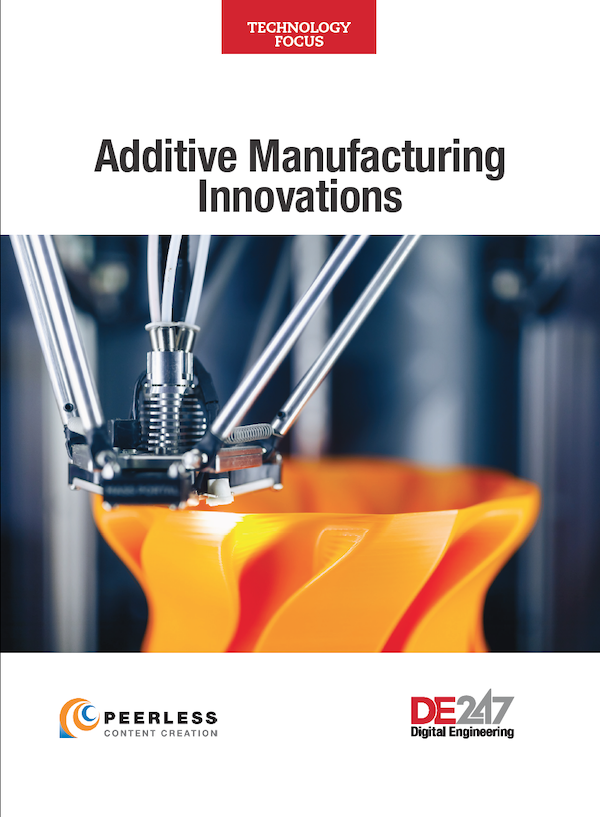Fortify’s Technology Enables Step Change in 3D Printed Materials
New module opens applications for photopolymer additive manufacturing.
March 20, 2020
Fortify, a 3D printing startup, has launched its continuous kinetic mixing (CKMTM) system, which enables new functionality in printed photopolymers. Fortify’s new system meets the need for advanced material properties in additive manufacturing. This news comes as Fortify grows into its new Boston headquarters with increased printing and manufacturing capacity. The company is preparing to ship machines to select customers this summer.
“Developing continuous kinetic mixing was an integral part of Fortify’s strategy. It will play a critical role in manufacturing functional parts,” says Fortify CEO and co-founder Josh Martin. “We’re excited to incorporate this material handling module with our Fluxprint process to solve the application challenges of our customers.”
Fiber and particle additives have been used to enhance polymer performance and functionality in the injection molding industry for decades. Fortify is implementing these reinforcing techniques with 3D printed photopolymers. CKM ensures that additives stay uniformly distributed throughout the material while mitigating sedimentation and aggregation. This system allows for the manufacturing of a new class of functional materials.
“Our team takes a comprehensive approach to developing additive solutions,” Martin continues. “In addition to advanced hardware and software systems, Fortify innovates within materials science to process viscous, heavily loaded polymers. This new class of material is well suited for high performance applications.”
The CKM process incorporates additives to enhance mechanical performance (strength, stiffness, toughness, wear and heat deflection temperature) as well as thermal and electrical properties. Fortify’s platform combines the scalability, resolution and surface quality of photopolymers with the performance expectations of traditional high-performance polymers.
Fortify has recently expanded successful use cases to include metal injection molding. In this application, ceramic fibers are blended with resin to manufacture tooling that can withstand the extreme temperatures and pressures of the molding process.
“For years our customers have been asking us for a better way to prototype parts with our production metal injection molding process. Speed, dimensional accuracy, and production intent processes are critical for our customer’s development efforts,” says Chris Aiello, technical sales manager at Alpha Precision Group. “Fortify finally showed us a tooling solution that holds up to our MIM process, and checks all the boxes for our customer requirements.”
“As our capabilities become known, we’re encouraged by the requests coming from the field,” says Ben Arnold, vice president of Business Development at Fortify. “There is clear demand for filled systems and we invite industry to challenge us with their requirements.”
Fortify is gaining traction in several specialty applications in the electrical and communications industries. These proprietary use cases leverage Fortify’s ability to combine strength with tuneable dielectrics in complex shapes.
Fortify’s Digital Composite Manufacturing (DCM) platform is a 3D printer that includes onboard mixing (CKM) and magnetic alignment technology (Fluxprint). The Fortify team will begin shipping machines this summer to select partner locations.
Sources: Press materials received from the company and additional information gleaned from the company’s website.
Subscribe to our FREE magazine, FREE email newsletters or both!
About the Author
DE’s editors contribute news and new product announcements to Digital Engineering.
Press releases may be sent to them via [email protected].






